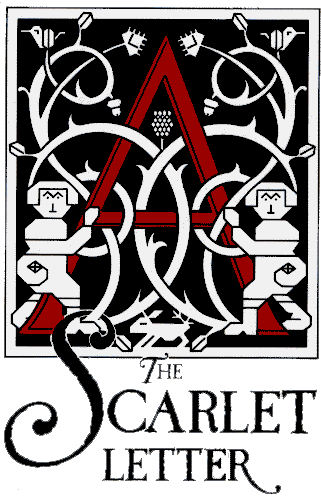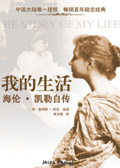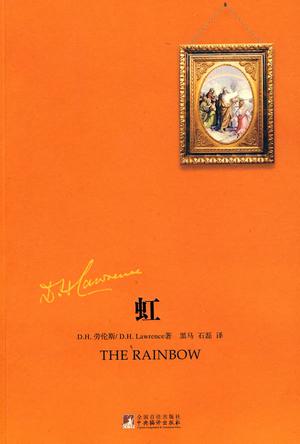the days of my life-第52章
按键盘上方向键 ← 或 → 可快速上下翻页,按键盘上的 Enter 键可回到本书目录页,按键盘上方向键 ↑ 可回到本页顶部!
————未阅读完?加入书签已便下次继续阅读!
unhappily died before he took possession; at the beginning of 1885; about ten years after I began life in South Africa。 Now with a wife and three children I was practically beginning life again in a small furnished house in West Kensington at the age of twenty…eight or thereabouts。
I remember; as one does remember trifles; that we drove in a railway bus from Liverpool Street to the West Kensington house; which personally I had not seen。 We passed down the Embankment; and my little son; whom I was destined to lose; kneeled upon the seat of the bus and stared at the Thames; asking many questions。
After my arrival in London I began to attend the Probate and Divorce Court。 Soon I found; however; that if I was to obtain a footing in that rather close borough; I must do so through a regular gate; and I entered into an arrangement with Bargrave (now Sir Henry Bargrave) Deane to work in his chambers。 He was a connection of mine; my cousin Major George Haggard having married his sister。 She died young。 At that time her father; the well…known lawyer old Sir James Deane; was still alive; and I remember acting as his junior in some Divorce Court case。 Bargrave Deane is now one of the judges of the Probate and Divorce Division。
Chapter 10 “KING SOLOMON’S MINES” AND “SHE”
“King Solomon’s Mines” — Andrew Lang — Estimate of Lang’s character — Anecdotes of Lang — Cassells and “King Solomon’s Mines” — Instant success — Letters from R。 L。 S。 — Bazett Haggard and R。 L。 S。 in Samoa。 — The writing of “Jess” and “She” — What I shall be remembered by — Fifteen months’ work — “She” dedicated to Lang — Published by Longmans — Letters about it — The Sherd of Amenartas。
Whether I wrote “King Solomon’s Mines” before or after I entered Bargrave Deane’s chambers I cannot now remember; but I think it must have been before。 At any rate I recollect that we brought up from Ditchingham a certain pedestal writing…desk; which had always been in the house and has returned thither; for it now stands in my wife’s bedroom; and added it to the somewhat exiguous furniture of our hired abode。 It stood in the dining…room; and on it in the evenings — for my days were spent in the Temple — I wrote “King Solomon’s Mines。” I think the task occupied me about six weeks。 When the tale was finished I hawked it round to sundry publishers; Hurst and Blackett among them; none of whom if I remember rightly; thought it worth bringing out。
At length; I know not how; the manuscript; which today presents a somewhat battered appearance; reached the late W。 E。 Henley; who appears to have brought it to the notice of Mr。 Andrew Lang。 How I first came into contact with my friend Andrew Lang — that is; where and when I met him — I cannot recall。 This; however; must have been subsequent to the following note:
1 Marloes Road: March 28 '1883'。
My dear Sir; — Your paper “Bottles” has reached me as London editor of Harper’s。 I am much pleased by it; but I am unable to accept anything except by permission of the American editor。 。 。 。 I am glad to take this opportunity of thanking you for the great pleasure “The Witch’s Head” has given me。 I have not read anything so good for a long while。
Faithfully yours;
A。 Lang。
What the paper “Bottles” may have been I am not now quite sure。 I think; however; that I can identify it with a short tale which subsequently appeared in a magazine; perhaps the Cornhill; under the title of “The Blue Curtains。” At any rate I have forgotten the circumstances of the story; and do not know whether a copy of it remains in my possession。
When Lang’s next letter was written — it is only dated “Sunday” — I gather from its tone that I had made his personal acquaintance。 Its subject is “King Solomon’s Mines;” and it runs:
Dear Mr。 Rider Haggard; — I have got so far as Sir Henry’s duel with the king。 Seldom have I read a book with so much pleasure: I think it perfectly delightful。 The question is; what is the best; whereby I mean the coiniest; way to publish it? As soon as possible I will find out what Harper’s Boy’s Magazine is able to do。 I believe that all boys’ magazines pay hopelessly badly。 There is so much invention and imaginative power and knowledge of African character in your book that I almost prefer it to “Treasure Island。”
The rest of the letter deals with possible methods of bringing out the work。
Lang’s next letter on the subject is dated October 3rd; and shows that by now we were on more or less intimate terms。
Dear Rider Haggard; — Many thanks for “K。S。M。” How grand the map is。 。 。 。 Abstain from politics; let civilisation die decently as die it must; and as we have no fight in us。 I don’t belong to the Voting classes。 Ni Elettori ni Eletti。
Yours very truly;
A。 Lang。
P。S。 — My people; with whom I have been in Galloway; prefer “Dawn” to “The Witch’s Head。” I don’t。 “Dawn” is too steep; especially Lady Bellamy; and George; and Philip; and the heroine。 The writing and the sentiment pleased me very much; but I barred the Astral Body。
Perhaps before I go any further I should try to give some estimate of Andrew Lang; whose character I have had opportunities of observing through many years。 Take him all in all I think him one of the sweetest…natured and highest…minded men whom it has ever been my privilege to know; although a certain obtrusive honesty which will out; and an indifferent off…handedness of manner; has prevented him from being generally popular。 Moreover; he has always been supposed to be somewhat of a mocker and farceur; as is exemplified in his Press nickname of “Merry Andrew。” Yet the truth is that his laughter is often of the sort that is summoned to the lips to hide tears in the eyes。 This may be seen by attentive students of his poems; and; in truth; few are more easily or more deeply moved by anything that appeals to the heart; be it national; or personal。
Of his abilities I speak with some diffidence。 On all hands he is admitted to be perhaps the soundest and ablest critic of his time; but when it es to his place as an historian; or as a student and recorder of matters connected with myth; ritual; and religion; I find myself inpetent to judge of his real status; which doubtless the future will decide; though personally I believe it will be a very high one。 On such matters; however; only experts can express opinions of real value。 Lang never claimed to be a creator; and whenever he sets to work to create; which he has not done of late years; his wide knowledge and his marvellous memory of everything he has read — and little worth studying in ancient or modern literature has escaped him — prove positive stumbling…blocks in his path。 I noticed this particularly when we were evolving “The World’s Desire。” With that modesty which so often distinguishes those who have much to be proud of; he once described himself to me as “A hodman of letters;” a description that may be paralleled by Mrs。 Lynn Linton’s rather sharp saying — to myself I believe; although of this I am not sure — that “Andrew Lang would be the greatest writer in the language if only he had something to write about。” The fact is; of course; that he has always had too much。 Like the amorous Frenchman he has ever been wont to eparpiller son coeur upon a hundred subjects。 I should add that Mrs。 Linton was one of his great admirers。 In a letter which she wrote to me in 1890; and which is before me at this moment; she says; “I simply adore his work。” Again; further on in the same epistle; she speaks of her “delight in his most exquisite work。”
The truth is that Lang is par excellence a litterateur of the highest sort; perhaps the most literary man in England or America。 When he is not reading he is writing; and he writes more easily than he talks; at any rate to most people。 Also some of his poetry is wonderfully beautiful。 If verses like “The White Pacha;” its panion “Midnight; January 25th; 1886;” and “A Dream” are doomed to die; and with them others as good; I wonder what will live! Again; what majestic lines are these upon the Odyssey:
So gladly; from the songs of modern speech
Men turn; and see the stars; and feel the free
Shrill wind beyond the close of heavy flowe





